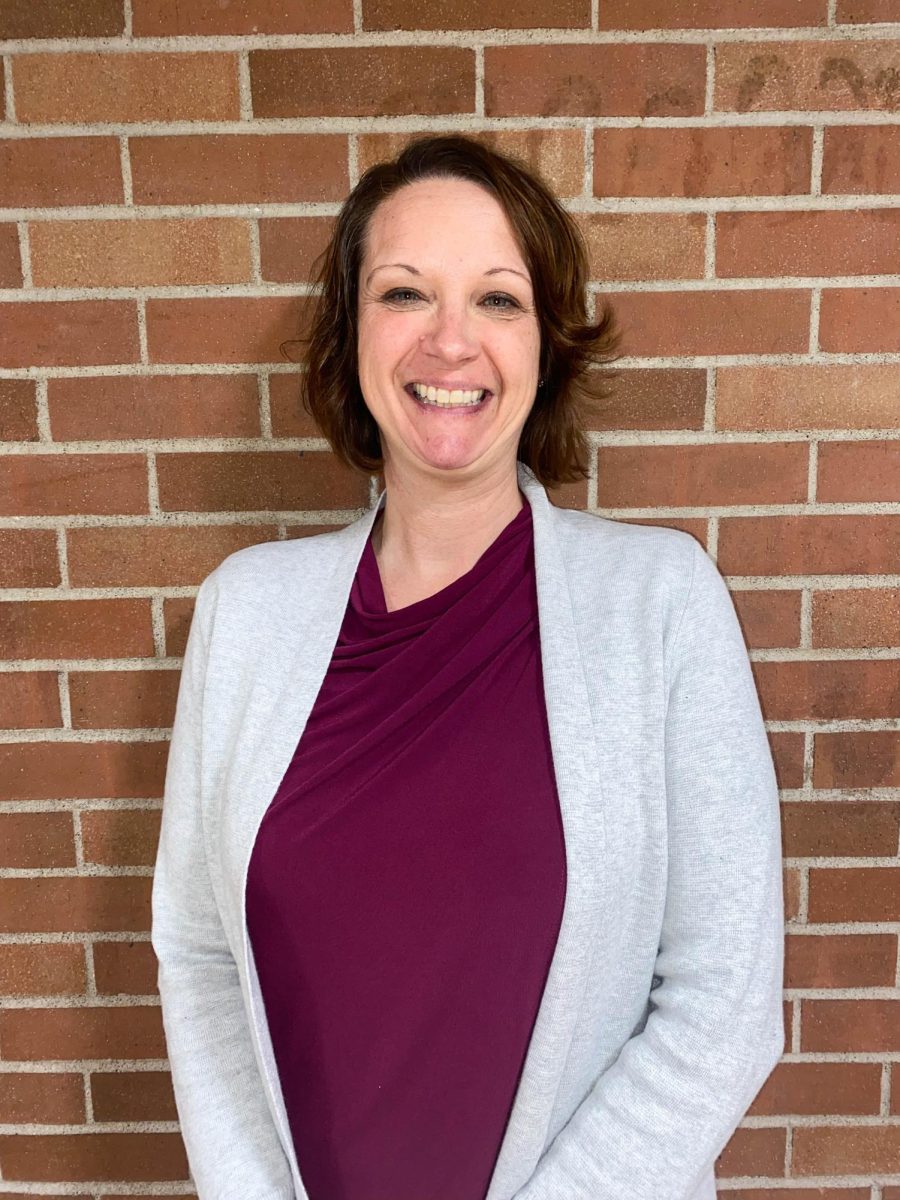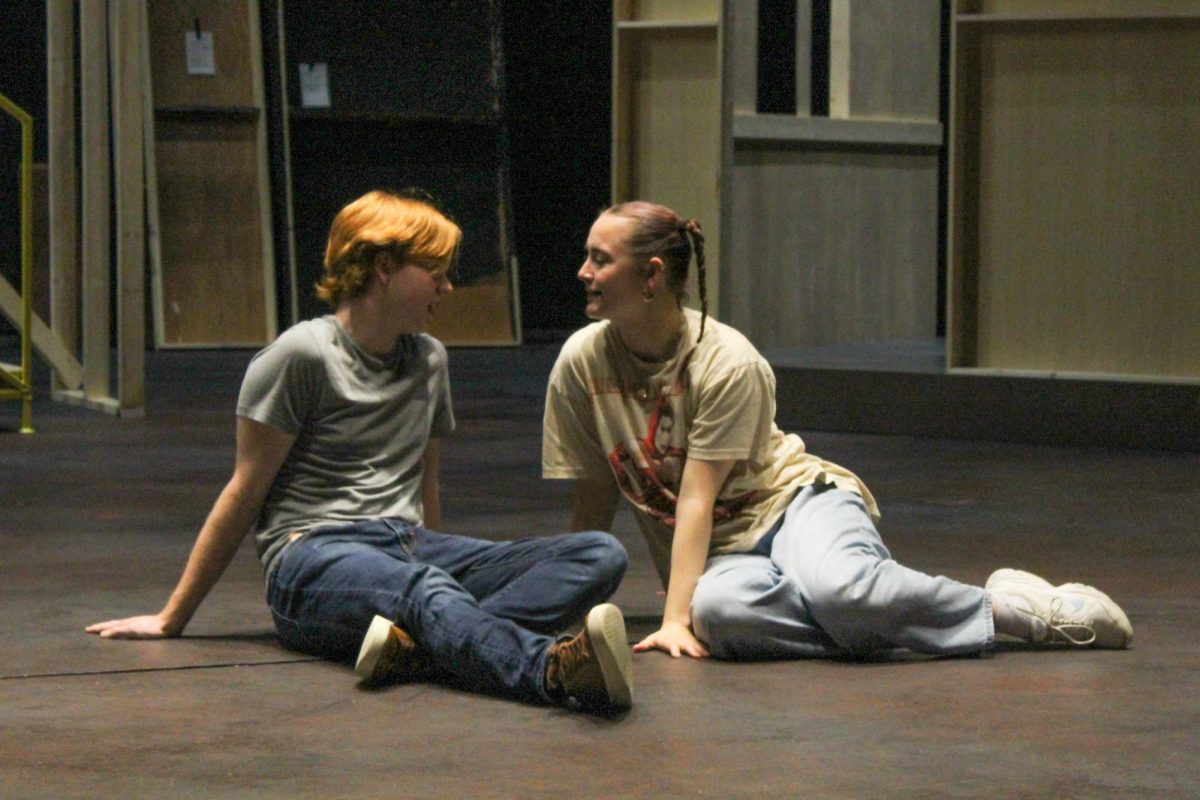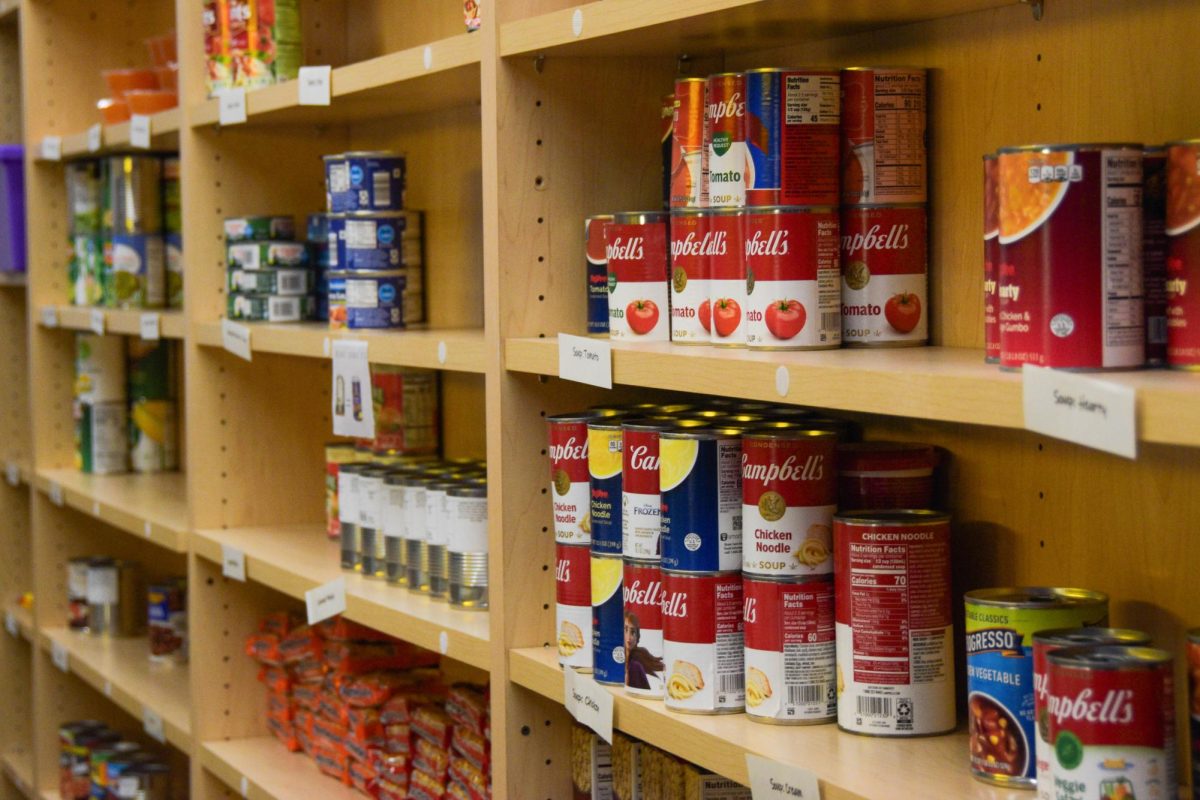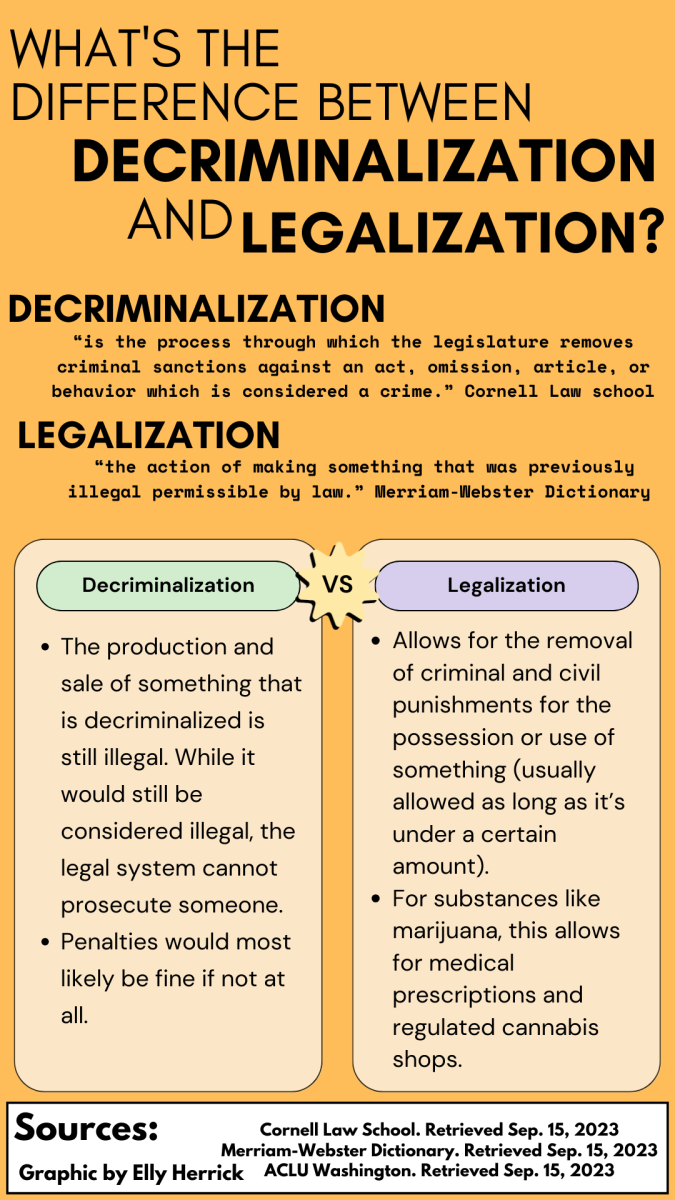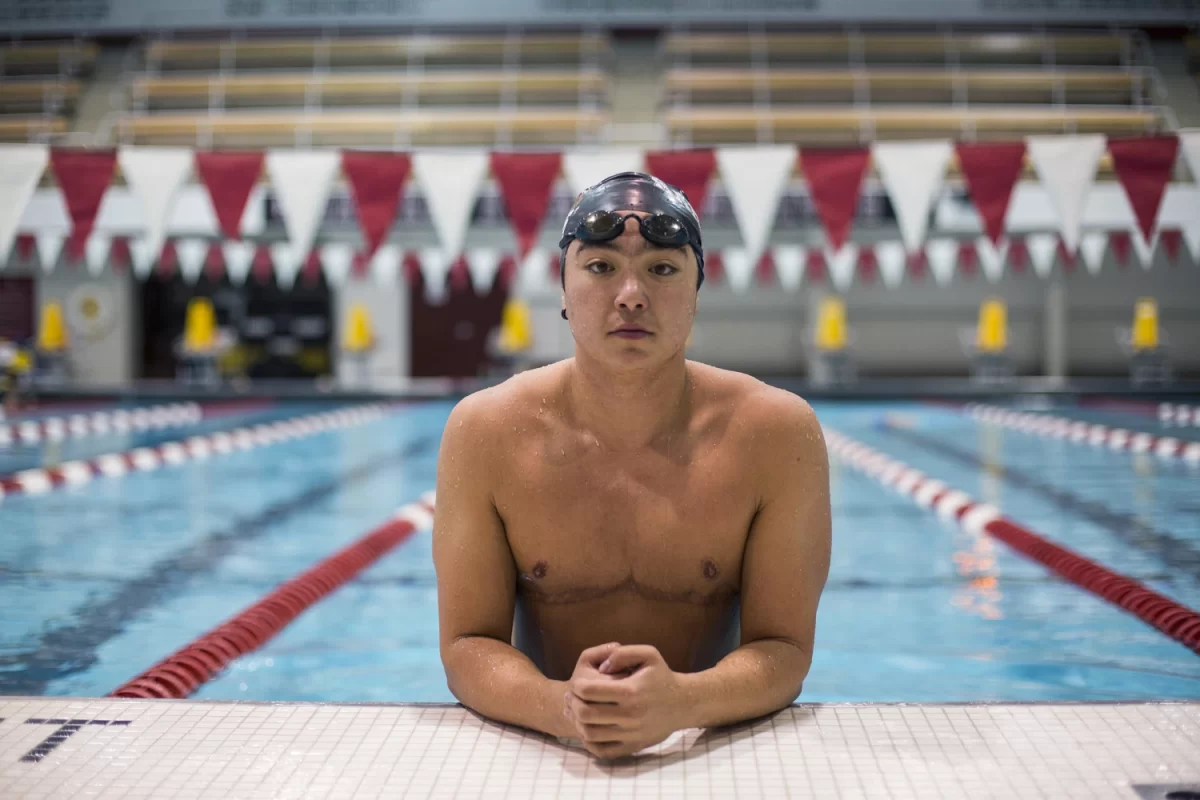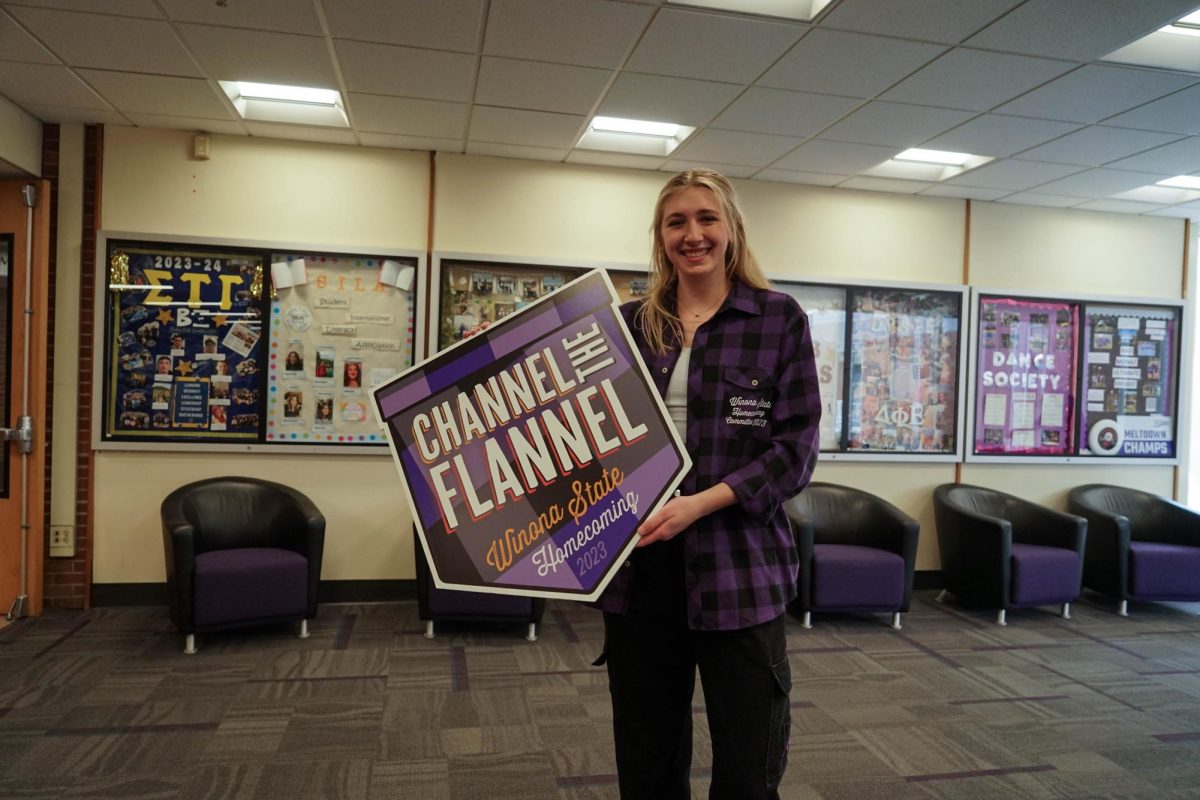Abigail Derkson/ Winonan
A city would normally be an unlikely place to find a farm, but urban farmer Will Allen had a vision to change that. In Milwaukee, Wis., Allen’s organization, Growing Power Inc., brought farming to the big city.
Growing Power Inc. produces various fruits and vegetables like lettuce, carrots, kale and tomatoes, as well as fish like tilapia.
Allen’s goal is simple: provide fresh, affordable food to everyone. He described his work and journey in his book “The Good Food Revolution.”
As part of Winona State University’s Lyceum Series, Allen shared his work and advice with Winona community members and students. At the talk in the Harriet Johnson Auditorium on Thursday, Nov. 13, Allen spoke of the current food system where foods like produce are transported over thousands of miles and considered fresh, but in actuality, are not.
“Our country is in crisis when it comes to our health,” Allen said, “and we can fix it with good food.”
Growing Power Inc. operates on more than 25 acres of greenhouses to produce fresh food for people, especially in low-income areas, to eat. The organization has contributed healthy food to schools and hospitals. Once they gave 30,000 pounds of carrots to the Chicago school food system in a single day Allen said.
To do these sorts of things, Allen stressed the importance of community involvement.
“We need to have everyone at the table,” Allen said.
This includes not only partnerships to sell the food but also partnerships to create the food. Through these partnerships, Allen collects food and other waste to compost.
The best food, Allen said, comes from the best soil. As Allen has proven with urban farming, soil can even be grown on asphalt.
Allen said he creates good soil through the process of vermicomposting: using worms and other waste to make fertilizer and more nutrient rich compost, which is necessary for production.
In total, Growing Power Inc. has 7,000 pounds of worms, and Allen said worms are arguably the best organic fertilizer.
Growing Power Inc. offers workshops to people who want to know how to grow soil. For Allen, his work is about sharing what he knows with people. Allen said he loves his work because he knows what he is doing is going to help others.
Allen shared his work and knowledge with Winona State’s environmental club when he toured the new greenhouses they set up.
Mary Schulberg, co-president of Winona State’s environmental club, described the greenhouse as a new project. The club was given the greenhouses in May 2014 and said they plan to use the space as a garden.
“We want to see if we can grow things year round,” Schulberg said.
Currently, they said they have planted lettuce, carrots, radishes, basil and other herbs. Their plan, ultimately, is to do something communal with the food like give it to a food shelf or sell at the farmer’s market.
Schulberg recognized that creating the greenhouse is a process.
“We are taking this one day at a time,” she said.
Allen stressed the importance of students’ involvement in creating healthier food for everyone.
“I look at these students as the answer to lead us out of this food system. Every school in this university is involved in the food system,” Allen said. “It’s important to pass on what I learned.”
Allen said anyone could help change the current food system.
“There are resources around you,” Allen said, “you just have to find out who those people are.”
Gretchen Michlitsch, an English professor at Winona State suggested different ways students can become more involved with sustainability on campus.
Winona State has recently created a sustainability minor where students can take various science courses and learn about sustainable practices. Students can also participate in the environmental club, Michlitsch said.
environmental club can use Allen’s work as a model, Michlitsch said.
“His experience inspires us,” Michlitsch said. “He sees problems and finds practical and novel solutions.”
Andrew Higl, an English professor at Winona State, is one of the many professors who teach Allen’s “The Good Food Revolution.” He said he has found a lot of students can relate to Allen’s work in urban farming.
“A lot of students have been exposed to farming,” Higl said. “Most people from farms don’t think of food in urban communities.”
Higl said farming could be the common denominator among students and can be used to incorporate issues of race and class into class discussions. Allen’s work includes not only issues of urban farming and sustainability, but also issues of race, class and the lack of access some people have to fresh, healthy food.
Jacob Stenberg, a Winona State student majoring in recreation and tourism, said he found Allen’s talk interesting. He was most interested in the ways Growing Power Inc. uses abandoned space to farm in urban areas, he said.
“When I think about farms I think about the country and wide open areas,” Stenberg said. “The idea never occurred to me that we could utilize green space inside cities to grow food.”
At the Lyceum talk, Allen encouraged students to think about the future of food and their place within it.
Stenberg said,“We are the people who will still be here in 40 years when there are millions of more mouths to feed than what there are now. Will mentioned it on stage, if we can’t feed everyone who is on Earth currently, what will we do then?”




























































